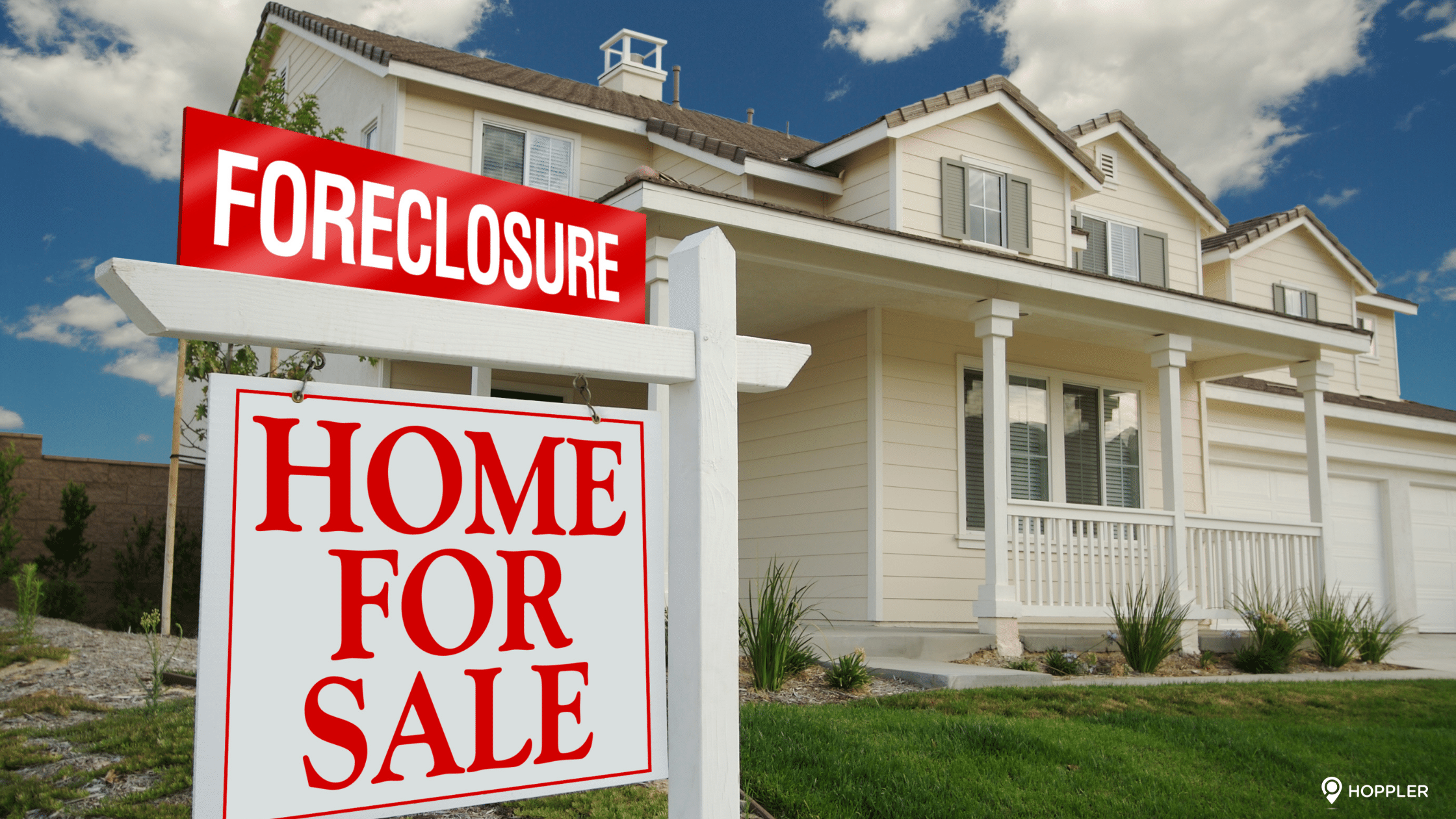Real Estate Series: Signs of a Downturn

Here’s what to look out for in a real estate market slowdown, and how it benefits homebuyers and sellers.
In the last few years, condominiums for sale, house and lot units, townhouse for sale units, raw lots, and even commercial properties for sale were in demand to the growing economy and needs of home seekers. People were more comfortable investing their hard-earned money on a property for sale, and even pre-selling properties were selling out like hotcakes, especially in prime locations.
But the pandemic has sent all economies in the world to an abrupt halt, including the real estate market. The uncertainty over when the coronavirus pandemic will be over, coupled with the national and local government efforts to invest more in healthcare solutions and policies has put a pause on real estate interest, and ergo, for most people, the interest in investing their hard-earned money into their future homes and properties.
But are these the signs of a downturn in the real estate market? Learn what it means to have a slow housing market below and how it impacts home buyers and sellers.
What creates a “hot” or “slow” real estate market?
First, let’s learn what factors make a real estate market “hot” or “slow.”
All markets, including real estate, operate in cycles. It means that with the right factors in play, it remains “hot” or that the demand for and supply real estate remains high. A “slow” real estate market means that there is a decline in real estate interest from the buyers’ side and that there is an oversupply of housing units. More to it later.
For now, you need to know that the real estate market often mimics the economic conditions and that these are the three things that directly impact the real estate market.
1. The Economy
You only need common sense to know that the economy has a certain influence on the real estate market. When the economy of a nation is doing well, the demand and sales of real estate properties are also high because people have the money and the confidence to invest in them. Whether it is for their future home or a way to diversify their investments, buyers are more confident in investing their hard-earned money on a condominium for sale, or a townhouse at a prime location, a house and lot unit at a resort community, or a raw lot where they can build their custom home for retirement. For businesses, it is easier and much cheaper to expand their operations in commercial properties located in cities that offer the best business incentives, tax reliefs, and local government support.
This will also prompt real estate developers to plan for more development of residential and commercial properties to cater to the high real estate demand. And with high buyer confidence, developers and existing property owners also have the confidence to raise prices on the properties they are selling or renting because there will be buyers who can afford it.
The effects are opposite when an economy is in recession. In a recession economy, unemployment rates are higher, and both buyers and financial institutions start tightening their spending and borrowing. This then creates less demand for housing and is often attributed to the reduction of real estate property prices.
2. Housing supply and demand
One of the factors that directly impact housing prices is the housing supply and demand. Regardless of the other factors, supply and demand can also dictate not only the real estate prices in the market, but it can also create opportunities for financial institutions to make bank (more on that later).
For example, a seller’s market is called a real estate market where there are more buyers than there are property units for sale. This means that sellers have a high chance to not only sell properties but also sell them at a high premium. Moreover, the seller’s market is skewed towards customers who can afford to pay more premium until enough supply saturates the market.
On the opposite side of the spectrum, an excess number of property units for sale creates a buyer’s market. Because there are not enough buyers, sellers will often reduce the prices, especially on properties that have long been “stagnant” in the market for a while. A buyer’s market is also expensive for sellers as they will often shoulder the upkeep and maintenance costs of keeping “stagnant” units in tiptop shape in order to keep the properties “attractive” to future buyers.
3. Interest rates
When buying real estate, not a lot of people can afford to pay it upfront in cash. Most buyers, even those who can pay more, take out a loan to pay off their condominium, townhouse, house and lot, raw lot, or commercial property.
Filipinos have two loan options for housing loans: a public loan in the form of PAG-IBIG, and a private loan from a bank. BPI, Metrobank, EastWest, and Security Bank are just some of the major banks that provide housing loans.
Interest rates and terms for home loans in the Philippines differ from bank to bank. Although most provide the option to pay at a maximum of twenty years, the minimum and maximum loan amounts differ between banks, as well as the qualifications needed and the types of properties a loan is used for.
Now how does this affect a real estate market? Remember the effects of the economy and housing supply and demand in our previous items? In summation, it has to do with the bank’s confidence in the economy and the current buyer climate. Banks will increase their interest rates if they foresee a high percentage of their borrowed money not earning nor getting recouped in a recession economy and/or with a housing market with an excessive supply of properties for sale.
As spending tightens, borrowing will also tighten. This is one of the many reasons why government financing institutions like Pag-IBIG offer a lower interest rate to encourage banks to do the same and encourage dreamers to continue their homebuying journey despite a recession.
However, a prosperous economy and/or a high market supply will prompt more banks to capitalize on buyer confidence. As more buyers are willing to spend (or spend more) on properties in a real estate market with low supply, banks will attract buyers with a high borrower score to seek loans with them at lower than average market interest rates.

Philippine Real Estate Market: How are we doing so far?
In a recently concluded experts panel, industry experts say a lot of opportunities for both buyers and sellers despite the massive disruptions, difficulties, and uncertainty brought about by the ongoing pandemic. Overall, they believe that recovery, although drastically uneven in some segments of the industry, is seen.
How a slow housing market impacts buyers
Associate Director Joey Roi Bondo of Colliers Philippines said that buyers across the board have investment opportunities in this economy and climate. He explained that the interest rates remain competitive and attractive for residential buyers at 6 to 8 percent, which is a far cry from the high 20 and 22 mortgage rates during the Asian financial crises. Moreover, a lot of developers have become more creative in attracting residential buyers by extending payment terms with bonuses or premiums, such as doling out gadgets or appliances for early adopters.
As for the office market, industries that are continuously growing due to the pandemic, such as e-commerce, health information management and services, and logistics can get better deals. For example, the lease rates in the Philippine real estate market were observed to be down 20 and 30 percent in some business districts, which is the right time for growing companies to scale. For retailers, it is important to have a strong online presence in order to drive customers to their physical stores.
How a slow housing market impacts sellers
The keywords among buyers right now are “quality” and “recession-proof,” and this is something sellers will need to show and market their properties with. Claro dG. Cordero Jr., the director of research, consulting & advisory services at Cushman & Wakefield Philippines, said investors are now seeking properties that are of quality and are recession-proof. This means that for example, homebuyers are seeking recession-proof developments with amenities that provide safety nets against the virus.
Cordero also said developers and sellers need to pay attention to segment growths so they can restrategize how they market themselves to prospective buyers. For example, a spike in home renovations and home offices will have some buyers be open to investing in homes that offer more living space than their current homes or have empty nesters retire to luxury homes in progressive communities in the suburbs. As for commercial properties, sellers should seize the growing demand for warehouses and cold storage facilities due to the e-commerce boom.
Cordero also added that the monetary policies set by the Bangko Sentral ng Pilipinas support the increasing level of real estate investments and growing capital values. These help keep the interest rates at a low level and inflation rates at manageable levels, creating a more conducive environment for investors to thrive despite the seemingly uncertain times.
The Bottom Line
Even if the real estate market shows signs of a downturn, this doesn’t mean that it is a bad time to buy. As a real estate investor, you should know that every market operates in cycles and that the key to being successful in real estate as a buyer or a seller is to know what opportunities are open for you to seize. If you evaluate the industry and take the right actions, you not only protect your hard-earned money (or business for sellers) but also allow you to achieve your real estate goals despite whatever state of the economy are you in.
??



